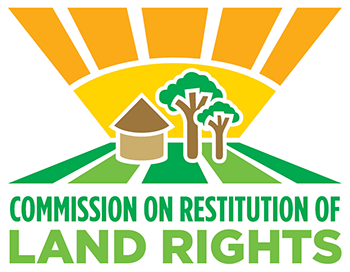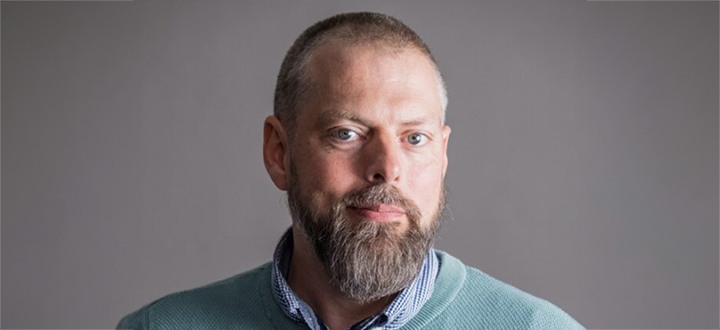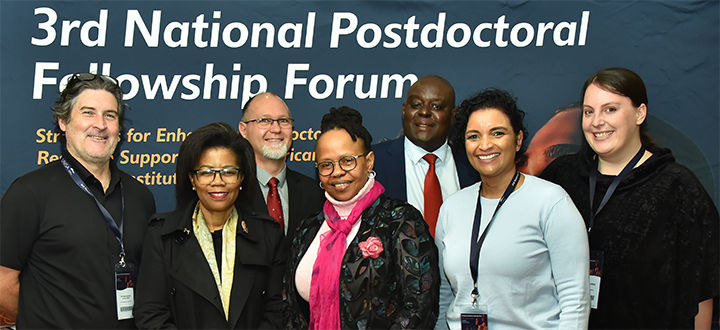College of College of Graduate Studies
Constructive ways exist to manage South Africa’s land conflict
 The window of opportunity to reach a peaceful, acceptable compromise on land reform in South Africa is still open, despite the increasing volatility and polarisation of viewpoints. This is not to say that South Africans can afford to underestimate the dangers of failing to find common ground urgently.
The window of opportunity to reach a peaceful, acceptable compromise on land reform in South Africa is still open, despite the increasing volatility and polarisation of viewpoints. This is not to say that South Africans can afford to underestimate the dangers of failing to find common ground urgently.
The possibility that a real solution can be found, juxtaposed with a stark warning about just how volatile the land reform issue has become, was the essence of a recent seminar hosted by the Archie Mafeje Research Institute (AMRI) within Unisa’s College of Graduate Studies.
The seminar was titled Ground rules: Considerations in respect of resolving conflicts around the land question in South Africa. The main presenter was Nelson Mandela University’s Professor Gavin Bradshaw, founder of the university’s Conflict Transformation and Management Programme; the largest of its kind in the southern hemisphere.
“South Africa has been through something like this before. If South Africa can recreate the same framework and context, then a solution can be seen,” said Bradshaw, who played a leading role in the South African National Peace Accord and trained the peacekeepers of the United Nations Mission in South Sudan (UNMISS) in 2015.
But he warned that circumstances had changed in South Africa since the days of national reconciliation when the country had earned the admiration of the world for its peace-making successes.
“The gloss is off South Africa and racial tensions are running at much higher levels now. Social cohesion is more threatened and is at the centre of the issue,” Bradshaw told delegates at the AMRI seminar.
Lack of hard facts is a barrier
Other factors compounding the land question include political parties’ superficial modes of addressing the issue, and the absence of a generally accepted common understanding of how much land belongs to whom in South Africa.
In protracted conflicts, it is difficult to agree on the nature of the conflict to be resolved without facts and data on the nature of the problem, Bradshaw said.
The land question in South Africa is undoubtedly a protracted conflict. The history of dispossession dates back to the 1650s when Dutch colonialists seized the land of the indigenous Khoikhoi people, and continued into the 1980s when the apartheid system attempted to “modernise” itself.
A major difficulty with protracted conflicts, Bradshaw said, is that they tend to be less responsive to normal conflict resolution instruments. What makes South Africa’s land question particularly problematic is that it has features of all six dimensions of deep-rooted conflict.
These six dimensions are differences of interest (such as when there is competition for scarce resources), differing values, frustrated human needs, misperception and misunderstanding, conflicted and distorted relationships, and problematic structural arrangements.
“Each type of conflict is more responsive to management by some forms of intervention than to others,” Bradshaw said. He used the example of value-based conflicts, such as those over differences in religious values, saying that negotiation alone could not be used for these types of conflicts.
Mapping a way forward
Mapping a way forward for South Africa, he said intense, long-standing and deep-rooted conflicts require careful conflict analysis, clear ground rules and inclusive, representative communal or national dialogue to identify all parties involved and all the issues at stake.
Bradshaw said the basic rules of conflict management require all parties to do honest analysis of what their interests are, and there should be clarity on the ultimate aims of government policy.
Dialogue should be well facilitated, ensuring that all viewpoints are aired and properly debated, and should also be based on facts from a land audit of who owns land, how the land is being used and how much of it is in private hands or state ownership.
The policy framework would have to be restructured in line with the interests, needs and values of stakeholders. Further, it would be important to “disaggregate” the conflict and identify a series of further processes. This would include dealing with basic human needs aspects through problem-solving workshops, as well as relationship-building and value-sharing exercises.
“The process should not be seen as a one-way progression,” Bradshaw said, adding that basic principles of conflict resolution should prevail. South Africans need to be on their guard against “killer” narratives, as these could prelude genocide and ethnic cleansing. In this regard, government has to lead by example.
He said the field of conflict transformation offers some very clear understandings of the way forward and could assist with a conflict management strategy suited to the complexity, sensitivity and deep-rootedness of land conflict in South Africa.
*With thanks to Professor Jimi Adesina of the SARChI Chair in Social Policy at AMRI for the notes on which this report is based.
*By Clairwyn van der Merwe
Publish date: 2018-07-18 00:00:00.0


 Breaking language barriers: SRU promotes inclusivity with multilingual support resources
Breaking language barriers: SRU promotes inclusivity with multilingual support resources
 Aiming at new heights: Professor Mashau takes helm as CHS's Deputy Dean
Aiming at new heights: Professor Mashau takes helm as CHS's Deputy Dean
 Don Cobra strikes a new chord: Musician earns a business degree
Don Cobra strikes a new chord: Musician earns a business degree
 Unisan to lead Southern Africa region in "Building Equitable Futures Together" project
Unisan to lead Southern Africa region in "Building Equitable Futures Together" project
 Unisa kicks off National Postdoctoral Fellowship Forum
Unisa kicks off National Postdoctoral Fellowship Forum